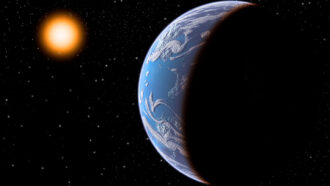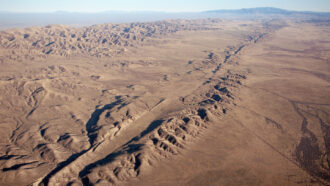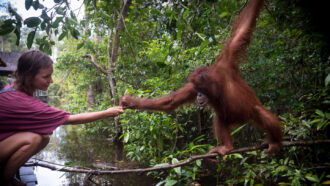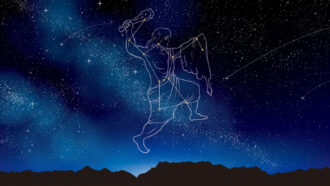Scientists Say
A weekly word defined, in a sentence and in context. Click here to find the alphabetized list.
-
 Planets
PlanetsScientists Say: Habitable Zone
The habitable zone is the region around a star where temperatures could be right for worlds to host liquid water.
-
 Computing
ComputingScientists Say: Supercomputer
These ultrafast computers perform complex calculations for research on cancer, quantum physics and more.
-
 Tech
TechScientists Say: Virtual reality
Virtual reality is an immersive, 3-D artificial environment created by a computer.
-
 Earth
EarthScientists Say: Fault
A fault is a crack in Earth’s crust where pieces of rock scrape past each other.
-
 Humans
HumansScientists Say: Denisovan
The Denisovans were a recently discovered population of ancient hominids.
-
 Physics
PhysicsScientists Say: Inertia
Inertia is the tendency of objects to resist changes in their motion.
-
 Materials Science
Materials ScienceScientists Say: Silicone
Silicone is a generic term for a whole slew of humanmade polymers with many different forms and applications.
-
 Animals
AnimalsScientists Say: Primate
Primates are mammals that tend to have big brains, forward-facing vision, fingernails and flexible hands and feet.
-
 Brain
BrainScientists Say: Stereoscopy
Stereoscopy allows the brain to perceive the two 2-D images seen by the eyes as a 3-D scene.
-
 Math
MathScientists Say: Variable
A variable is something that can be changed — such as a value in math, or a factor in an experiment.
-
 Earth
EarthScientists Say: Atmosphere
An atmosphere is an envelope of gas around a planet, dwarf planet or moon.
-
 Space
SpaceScientists Say: Constellation
Constellations are clusters of related things, especially the stars that form patterns in the night sky — some of which date back to ancient times.